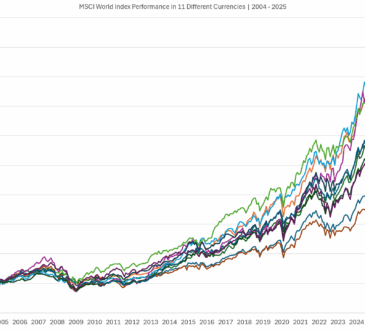Volatility in these currencies related to political and monetary changes By Investing.com

Investing.com – Political and monetary decisions have been bringing volatility to various currencies, including the , , and Japanese yen. While the French elections weakened the euro and strengthened the Swiss franc, Japanese monetary policy is negatively affecting the yen. This is the assessment of Julius Baer, which released a note to clients and the market on Tuesday.
The weakening of the euro and strengthening of the Swiss franc may have diminishing effects, according to the Swiss group, “since the franc remains well-balanced and the impact of the elections may be less significant than feared.” Despite having affected the euro, David Meier, an economist at Julius Baer, sees limited impacts on the currency.
“The euro had already started to weaken earlier this month when the European Central Bank began its easing policy. However, the policy expanded this weakness, with levels around 0.95 showing evidence that the franc is once again significantly overvalued,” he explains, estimating EUR/CHF at 0.97.
For the Japanese currency, the change in the Bank of Japan’s ultra-loose policy is expected to continue affecting the yen, Julius Baer believes. “The Japanese yen continued to weaken after the July meeting of the Bank of Japan, which maintained an unchanged policy stance, with more information on the gradual reduction of bond purchases postponed to the next meeting,” he recalls, considering that the normalization of BoJ’s monetary policy is very slow. Julius Baer estimates at 160 over the forecast horizon of 3 to 12 months.
- Special winter promotion! You are entitled to a spectacular discount on the purchase of the powerful InvestingPro tools. As a reader of this article, use the code BEPRO to get an additional discount on current promotional prices for annual or biennial plans!


